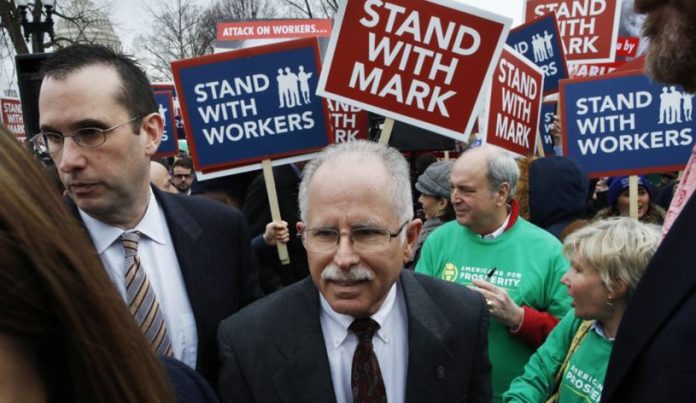In June of 2018, the U.S. Supreme Court ruled against AFSCME, deciding that applying union fees to non-members in the public sector is a violation of the First Amendment.
As a result, public-sector employees can no longer be forced to pay fees to unions that they did not want to join.
Additionally, the plaintiff Mark Janus asked for reimbursement to compensate him for years of lost fees that had already been paid to the union.
“This raises a tricky issue,” according to the National Review.
When the fees were charged, they were legal under Supreme Court precedent — but the Court has now decided that the precedent was wrong, and that the fees were actually illegal under the true meaning of the Constitution. Hitting the union with damages smacks of ex post facto punishment (and no doubt would lead to lots of similar claims against other unions), but on the other hand, it doesn’t seem right to tell Janus simultaneously that (A) it was unconstitutional to make him pay the fees and (B) he’s not entitled to his money back.
A new court decision sides with the union. Under federal law, individuals can sue government actors for violations of their rights, and this applies as well to private parties (such as unions) that invoke state statutes to violate rights. However, there’s a murky legal question of when private parties are able to invoke the “good faith” defense available to public officials in such cases.
Janus Fees Reimbursement Outcome 3/28/2019 on Scribd





